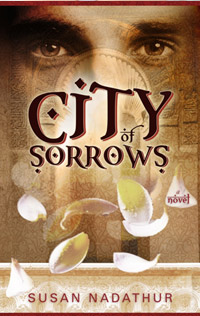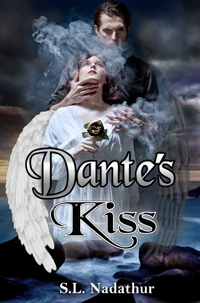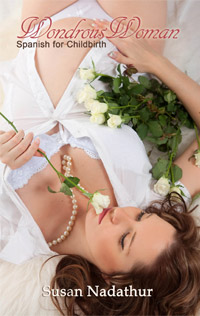Q: What inspired the writing of this book? (Questions & Answers refer to The Halls of Abaddon Book 1: Mind Binder)
A: The stories that young people shared with me. In my work as an author of young adult literature, I have interacted with hundreds of young people. And sadly, I have encountered one persistent and universal theme: self-harm and the occult as a way of dealing with the painful realities of being young.
Q: Are the themes of self-harm and the occult addressed in your book?
A: Yes. Mind Binder is about the chain of events that often leads to a young person wanting to either take his own life or to dabble in the dark arts. But unlike other young adult books that tackle these weighty subjects, Mind Binder explores the concept of spiritual warfare as a contributing factor to both suicidal ideation and the allure of the occult.
Q: The occult is a tricky subject to introduce into young adult literature. Will your book be controversial because of it?
A: Yes. Mind Binder will be controversial. The book is set in Abaddon, a fictitious school in a place that may be compared to Hell. Anything related to Hell is bound to be controversial.
Q: Considering that it will be controversial, why did you choose to include elements of the occult in a book meant for teen readers? Won’t that possibly entice them into dabbling in the dark arts?
A: Many young people, looking for meaning in their lives, gravitate toward the occult through two of its major attractions: curiosity and the craving for power and control over their lives. Why not meet them where they are? With their natural curiosity for the mysterious, young people will lean toward a book that is appealing to their interest and free from adult “teachable moments”—or so they think. By capturing their attention with what naturally fascinates them, we can draw them in, to later introduce concepts they may not have considered, like the connection between suicide and the occult. Or that once “in” to dark places, it is not always easy to get “out.”
Q: Is there a connection between the occult and teen suicide?
A: According to conversations I have had with pastors and priests, the connection between the occult and teen suicide is often ignored, but there is an innate human attraction to the mysterious, the secret and the unknown—especially for a young person who thinks obsessively about death. Suicide and the occult often go hand in hand.
Q: How will young people benefit from reading this book?
A: Many young people today are going to dark places to find meaning and control in their often-tumultuous lives. But they are not talking about it. Why would they? What teen wants to share what is happening in their world with adults who might, despite all good intentions, offer advice and tell them what to do?
Perhaps an alternative to talking with young people about the life challenges they face is to talk about the struggles others face—through the safety net of literature. Through a book like Mind Binder, young people can see how others have encountered and resolved problems that cause sadness, stress, fear and anxiety. They can understand that they are not alone in encountering heartache, rejection, loneliness and fear. Once a teen sees himself represented in a book, his experience is validated. Feeling part of something bigger, something universal, can be a powerful tool in combating suicidal thoughts and negative emotional impulses.
Q: How are you qualified to write this book?
A: Mind Binder is not meant to be a spiritual or psychological study on suicide prevention and the occult. It is intended to be a story that will hopefully both entertain and educate. In all aspects of this book, however, I have consulted with Christian leaders, psychologists and educators who work with at-risk teens and young adults.
Q: How does being a Christian influence your writing?
A: Being a Christian means being connected to God. Being connected to God means understanding not only Him, but his enemies. In the spirit of C.S. Lewis, I seek to understand Satan’s ways and expose his strategies. In Latin, the occult means “knowledge of the hidden.” And knowledge, as they say, is power.
Q: What does Mind Binder offer that will convince parents and teachers that, despite the dark theme, this is a book with a positive message for young people today?
A: Despite what might first appear a dark and controversial story, Mind Binder is above all else a book about hope. No matter how bad things get, or how hopeless life seems, this book shows that there is a way out of the darkness and into the light. Without being didactic, the book probes into the vulnerable corners of young adulthood and depicts messy struggles over relationships, body image, bullying, self-harm, and the occult. It does not shy away from the controversy and fear of talking about Satan and his role in the negative thinking that often leads to destructive thoughts. But more importantly, it offers a way out of the dark places many teens fall into. The book is a road map for escaping the strongholds of relationship stress, poverty, low self-esteem, and self-harm by offering hope through a story that is not afraid to delve into darkness and the allure of the occult.











